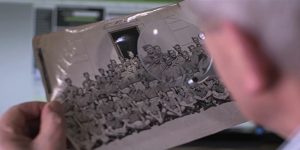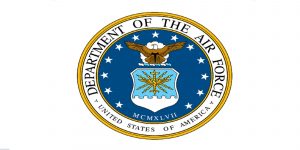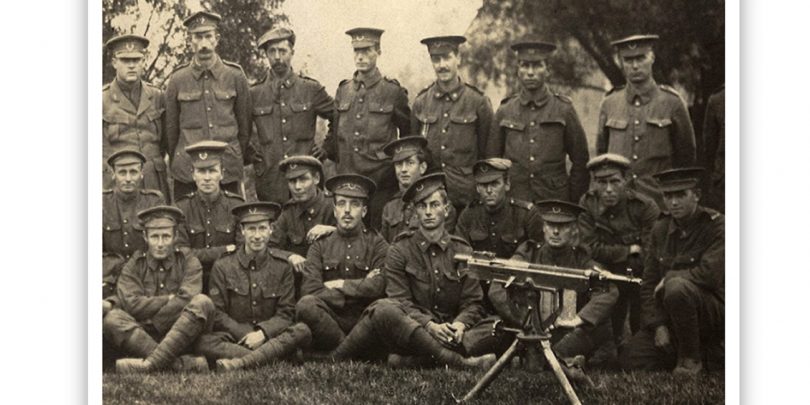Table of Contents
Military genealogy succeeds when you know the right places to look for clues, as well as suitable strategies to employ when faced with common complexities.
Above all, you want the link between you and the ancestor in the armed forces to be beyond doubt.
Luckily professional genealogists at RecordClick can help you unwind your personal intricacies and help you discover veteran ancestors.
But to give you a sneak peek into the entire process, this guide highlights the most important aspects of military genealogy.
Key Takeaways
- Military genealogy is such a sensitive affair because beyond finding names and dates it unearths the pivotal roles the ancestors played and how they shaped the world we live in today.
- The best way to start researching ancestors in the armed forces is by gathering readily available information, i.e., photographs, and stories before you go to archives and military records.
- Common Military Records Challenges include incomplete records, record loss, spelling variations, and language barrier.
RELATED:
Find a Genuine Genealogist for Accurate Ancestry
What Makes Military Genealogy So Sensitive?

Army veterans
Military genealogy is such a sensitive affair because it goes beyond finding names and dates of your ancestors. This form of family history research unearths the pivotal roles the ancestors played and how they shaped the world we live in today.
First, you want to know what motivated your ancestors’ decision to serve in the armed forces when such an endeavor was not as lucrative as it may be today. Was it out of a commitment to protect generations? Was it a sense of duty? Or just a forced submission?
Whether it’s a distant relative who fought for independence or a great-grandfather who served in Revolutionary War, military genealogy can help untangle the threads and contribute to a larger tapestry.
Conducting this research can also offer a trove of information on the ancestors’ experiences and lives. Documents showing the assignments, their ranks, and some letters from the frontlines can create a vivid picture of their journey in the armed forces.
This way, you recognize and pay tribute to your ancestors’ honor, sacrifice, and courage and ensure the legacy lives on.
How To Start Military Genealogy Research

Photographs are crucial in Genealogy
The best way to start researching ancestors in the armed forces is by gathering readily available information. Study all the existing documents, photographs, and stories before you go to archives and military records.
Here is a step-to-step guide on how to start your military genealogy on the right footing.
- Detail What You Know: Make a basic family tree using the readily available information and insights from older relatives.
- Indicate Important Information: Document birthdates, locations, and manes of family members in the family tree, especially those who have served in the armed forces.
- Search for Historical Records: Ancestry research involves perusing certificates to get a timeline of significant events such as wars and conflicts. The types of crucial military records to search are detailed in the next section of this guide.
- Focus on Archives: Most military records are found in archives, so you can find information about the ancestors’ enlistment, assignment, and more in institutions like National Archives.
- Seek Professional Assistance: A professional genealogist can help unravel obscured details in your research and help authenticate your findings at an affordable rate.
What Key Records Do I Need in Military Genealogy?

Records and letters in a library
Some essential records you must find to complete your military genealogy include service, unit histories, and pension. You must understand the specific databases to check to save time and energy throughout your exploration.
Here are the military records that can help paint a picture of your ancestor’s life;
Service Records
A service record is a document in the armed forces with details about an individual’s activity from enlistment to discharge. Getting your hands on this record can unravel your ancestor’s enlistment dates, promotions, or any disciplinary action.
The resources also provide a timeline that can help you track the ancestor’s progress in the service through accomplished missions and ranks.
Unit Histories
As the name suggests, these unit histories expound on the larger context of the armed forces. Through these records, you can learn about the actions, engagements, and movements of the special unit within which your ancestor served.
Unit histories are a rich source for insights into the challenges, battles, and victories associated with the ancestor.
Medal Citations
If your ancestor was one of the awarded officers, you can find more details in the citations. Here, you find the reason for the medal, which offers vivid snapshots of your ancestor’s dedication, bravery, and contribution to service.
Discharge Papers
These documents are also known as separation documents or discharge certificates, marking the end of service. Crucial information in these documents includes the nature of the discharge, the ancestor’s final assignment, conduct in service, and commendations or awards.
Pension Records
Officers are entitled to a pension once they retire like any other civil service. So, finding pension records can help you discover the post-service life of your ancestor, any medical condition, and the support received from the government.
Personal Correspondence
Find out if your ancestor had personal correspondence, diaries, and letters written during their service or retirement. These documents can provide insights into the emotional status of the ancestor during service and their interactions with colleagues.
RELATED:
A Family History Researcher Marches to Military Records and Finds More About George Clooney’s Family
How To Access Official Military Genealogy Records

Department of the Air Force
Now that records have proved vital to uncover factual information about ancestors who served in the armed forces, you need to know where to look.
Below is a list of places to find the necessary resources.
Archives
National and local archives are the go-to places for genealogists looking to unlock mysteries about ancestors. For example, the U.S. National Archives Records Administration (NARA) keeps all the necessary records highlighted in this guide.
You can physically visit the archives or explore their online databases for your desired records.
Online Databases
Technological advancements and digital evolution have made military records more accessible. Websites like FamilySearch, Fold3, and Ancestry.com provide pension files and unit histories which you can view or download.
Military Genealogy Libraries
Libraries are the go-to places for military-specific reference materials, directories, and publications to guide your exploration. Besides, most libraries have an online subscription that provides access to a vast military record.
Military Genealogy Museums
A museum dedicated to the armed forces houses crucial records about battles and individual soldiers. This is a likely place to find diaries, letters, and photographs depicting the firsthand experience of your ancestors. Most importantly, museums are an educational resource that offers insight into the context of historical research.
Genealogy Societies
Historical organizations and genealogy societies are excellent starting points for military family history research. The societies provide the necessary genealogy expertise and a network of people with the same objective.
Common Military Records Challenges and How to Overcome

Military Genealogy
The path is never smooth in military genealogy, as you will likely face many challenges, from scant resources to name variations.
Below we highlight the quick fixes to common challenges you may face when tracing ancestors in the armed forces.
Incomplete Records
Most genealogy records have missing information due to recordkeeping practices and degradation. If the record lacks crucial information for your research, supplement it with other documents such as photographs and letters for hints.
Record Loss
If, unfortunately, military records were lost in fire, conflicts floods, etc., explore alternative information sources such as pension files, newspapers, and unit histories. The alternatives can provide crucial leads and context about your ancestor’s service and lineage.
Spelling Variations
Variation in spelling is a common genealogy hurdle, especially when searching ranks or names. The variations risk obscuring your ancestor’s identity or misleading the entire research. Crack this code by identifying local accents, nicknames, and phonetic spellings, which might have influenced the recordings.
Language Barriers
If the ancestor served in a foreign military, records may be written in an unfamiliar language, further complicating your research. Nonetheless, you can collaborate with translators and utilize online tools to unravel crucial information.
Breaking The Brick Wall
Most DIY genealogy research endeavors end up in a resilient brick wall that can only be broken by starting from scratch or abandoning the exploration. To avoid such an occurrence, you should start your research with the assistance or fellow researchers from genealogy societies, social media groups, forums, etc.
Fellow researchers may have encountered a similar challenge and are better informed on the best techniques. This collective problem-solving can lead to valuable insights and exciting discoveries.
RELATED:
Our Genealogist Takes You Overseas to Military Cemeteries and Monuments
Begin Your Military Genealogy Now
When you engage in military genealogy, you pay homage to your ancestors’ contribution and the influence it has today.
However, the most critical thing is tracing this ancestor and correctly placing them in a complete family tree.
So, you can’t afford to be tactless, given the matter’s sensitivity. Instead, take advantage of discounts when you hire an expert genealogist at RecordClick and expedite your accurate ancestry research.







